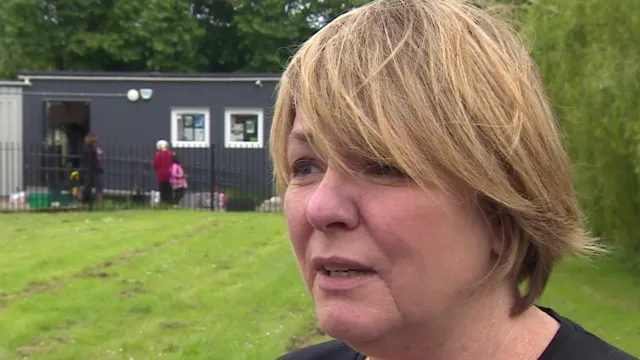The financial crisis in Nigeria has significantly impacted international students in the UK, with a substantial number of Nigerian students from Teesside University relying on the services of a local food charity. The manager of Sprouts Community Food Charity (SCFC), Debbie Fixter, revealed that 75% of their clients are Nigerian students who are struggling to afford basic necessities due to the economic downturn in their home country.
The severe depreciation of the Nigerian naira, which has lost over 200% of its value against the dollar in the past year, has left many students financially stranded. This situation has led to some students being blocked from their studies and facing orders to return home for failing to pay tuition fees on time. Ms. Fixter described the situation as having pushed SCFC to “maximum capacity.”
Teesside University has stated that it is providing support and requires international applicants to show proof of sufficient funds when applying for visas. Despite this, the financial strain on students has been palpable, with many turning to community organizations like SCFC for help.
SCFC provides a range of services, including free or low-cost food, clothing, and household items. Over recent months, the charity has seen a noticeable shift in its clientele, with the majority now being Nigerian master’s degree students from Teesside University.
Nigeria is grappling with its worst economic crisis in a generation, causing students’ savings to dwindle and their budgets to be drastically cut. Some students have been ordered to leave the UK after failing to meet tuition fee deadlines. Nonetheless, Teesside University continues to recruit students from Nigeria.
Ms. Fixter highlighted the struggles faced by these students, emphasizing that they are now an integral part of the local community. “They’re really struggling, they need help and they’re part of our community,” she said.
One affected student, Boluwatife Elusakin, shared his plight, stating that he had to “dive deep” into his savings to cope with the living and study costs in the UK. “Things are no longer the same,” Elusakin said. “I’ve had to cut costs because of the currency crash, it hit my savings as I’d already budgeted funds to come here.”
Another student, who wished to remain anonymous, pointed out that changes to the university’s payment plans, reducing instalments from seven to three, have compounded their problems. Additionally, legal restrictions on the number of hours they can work have further limited their ability to support themselves financially.
The charity’s increased demand has prompted Ms. Fixter to call for more support from Teesside University. While the university has provided a £500 donation in Sainsbury’s vouchers, she described this as a “drop in the ocean” compared to what is needed to support the influx of students.
Teesside University has acknowledged the situation and stated that it works closely with community organizations to direct students to its own support services. The university also affirmed its commitment to offering “case by case” support to affected students and highlighted its global reputation for excellence in teaching and research as a draw for international students.
A university spokesman added, “All international applicants need to provide evidence that they have sufficient funds to cover tuition fees and living costs as part of the visa application process.”
As the economic crisis in Nigeria continues to affect its students abroad, the need for comprehensive support systems within universities and communities remains critical to ensure their well-being and academic success.

